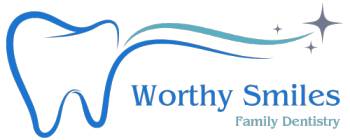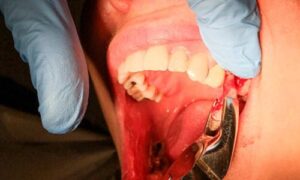Dental anxiety is a common issue many individuals face, causing them to feel uneasy or fearful when visiting the dentist. This anxiety can stem from factors like past traumatic experiences, fear of pain, or a general fear of dental procedures. However, managing dental anxiety is crucial to maintain good oral health and prevent dental problems from escalating. In this article, we will explore some valuable tips to help individuals managing dental anxiety and have a more comfortable dental experience.
Understanding Dental Anxiety
Dental anxiety refers to the fear or apprehension experienced by individuals when faced with dental visits or procedures. It can manifest in various ways, including increased heart rate, sweaty palms, restlessness, or even panic attacks. The prevalence of dental anxiety is significant, with studies indicating that approximately 9-15% of people worldwide suffer from dental anxiety.
Effects of Dental Anxiety
Unmanaged dental anxiety can have detrimental effects on both oral health and overall well-being. Individuals with dental anxiety often delay or avoid necessary dental treatments, leading to the progression of oral health issues such as tooth decay, gum disease, and even tooth loss. Moreover, the constant worry and fear associated with dental visits can result in increased stress levels, poor sleep, and a negative impact on mental health.
Choosing the Right Dentist
Selecting a dentist who understands and empathizes with dental anxiety is crucial to managing this condition. Conducting thorough research and seeking recommendations from trusted sources is essential to find a dentist who creates a supportive and comfortable environment for anxious patients. A dentist with experience dealing with dental anxiety can significantly alleviate patients’ fears and concerns.
Communication and Trust
Establishing open communication with your dentist is vital in managing dental anxiety. Clear communication allows patients to express their fears and concerns and ask questions about the procedures. A dentist who listens attentively and addresses these concerns can build trust with the patient, making them feel more at ease throughout the dental visit.
Relaxation Techniques
Implementing relaxation techniques can be highly effective in managing dental anxiety. Deep breathing exercises, where individuals take slow, deep breaths through their nose and exhale through their mouth, can help calm the nervous system and reduce anxiety. Progressive muscle relaxation involves tensing and relaxing different muscle groups to promote peace. Meditation and visualization techniques can help individuals create a sense of calm and focus their minds away from dental procedures.
Distraction Techniques
Distraction techniques during dental procedures can divert the patient’s attention and alleviate anxiety. Listening to soothing music or audiobooks through headphones can create a relaxing atmosphere and help individuals relax. Watching movies or TV shows on screens placed above the dental chair can also be a great distraction, providing a visual diversion from the procedure.
Sedation Dentistry
Sedation dentistry can help patients feel more comfortable and relaxed during dental procedures, allowing the dentist to perform the necessary treatments while minimizing anxiety and discomfort. Different types of sedation are available, ranging from mild sedation to general anesthesia. For individuals with severe dental anxiety, sedation dentistry may be an option to consider.
Cognitive-Behavioral Therapy
Cognitive-Behavioral Therapy (CBT) is a psychological approach that can be beneficial for managing dental anxiety. CBT helps individuals identify and challenge negative thoughts and beliefs about dental visits and procedures. By reframing these thoughts and learning coping mechanisms, individuals can gradually change their perception of dental experiences and reduce anxiety.
Gradual Exposure
Gradual exposure to dental procedures can be an effective technique for managing dental anxiety. Starting with less invasive treatments, such as dental cleanings or examinations, allows individuals to become more comfortable with the dental environment and procedures gradually. As confidence builds, they can slowly progress to more complex treatments, such as fillings or extractions.
Support System
A support system can provide significant comfort and encouragement for individuals with dental anxiety. Bringing a trusted friend or family member to dental appointments can offer emotional support and be calming. Additionally, joining support groups or seeking counseling can provide a safe space to share experiences and receive guidance from others who have overcome dental anxiety.
Preventive Care
Regular dental check-ups and preventive care are essential for maintaining oral health and reducing the need for extensive dental treatments. Routine cleanings, examinations, and preventive measures can help individuals stay on top of their oral health and minimize dental anxiety. By addressing dental issues early on, individuals can avoid more complex and potentially anxiety-inducing procedures in the future.
Patient Education
Understanding dental procedures and their benefits can alleviate anxiety by giving individuals knowledge and control over their dental care. Patients should feel empowered to ask questions and seek clarification about processes, potential discomfort, and expected outcomes. A dentist who takes the time to educate their patients can help alleviate fears and build confidence.
Creating a Comfortable Environment
Dental offices can create a more comfortable environment by considering various factors. The office design and atmosphere should be welcoming and calming, with soothing colors and pleasant décor. Patient comfort measures such as comfortable chairs, blankets, or noise-canceling headphones can provide a more relaxed dental experience.
Conclusion
Managing dental anxiety is crucial for maintaining good oral health and receiving the necessary dental care. Individuals can effectively manage their stress by understanding dental anxiety, choosing the right dentist, utilizing relaxation and distraction techniques, considering sedation dentistry, and gradually exposing themselves to dental procedures. Building open communication, seeking support, prioritizing prevention, and educating oneself about dental procedures are essential to managing dental anxiety. By implementing these tips, individuals can overcome their fears and have a more comfortable and positive dental experience.
More blogs to read:














